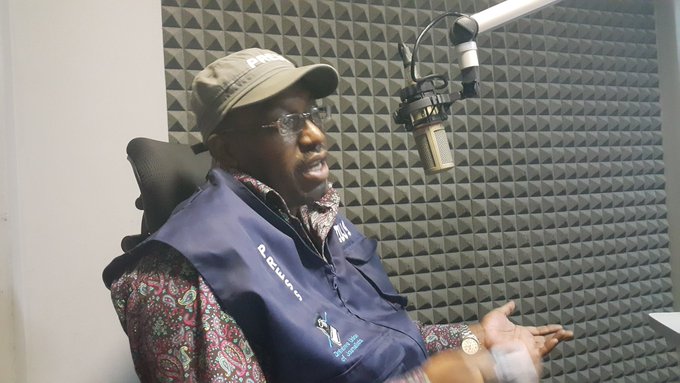By Joyce Mukucha
The Zimbabwe Union of Journalists (ZUJ), a media trade union that seeks to protect and promote the rights of journalists as media workers has conducted a two-day training workshop for Harare-based journalists in an attempt to upscale their expertise in accountable governance and community development.
The training’s main thrust was aimed at narrowing the information and communication gap in marginalised rural and urban communities as well as facilitating increased exchange and interaction between community voices and mainstream media in these areas, contributing to more inclusive media.
Speaking during the training which was running under the theme, “Strengthening the role of the media in support of accountable governance and community development in Zimbabwe,” the workshop lead trainer, Charles Rukuni said the media has the power to promote development among communities.
He urged the media to speak for the communities especially the marginalised ones to ensure that effective development takes place and explained that it must be a two-way communication.
“As journalists, through your work you have the power to bring positive change in societies. You play a critical role of acting as a link between communities, government, policy makers, among other stakeholders. You journalists are the means through which people who do not have a voice can communicate with the government and vice versa,” he said.
Rukuni also emphasised that members of the fourth estate must be responsible, show professionalism and respect whenever they practice their duties. He pointed out that journalists must be careful, research and always evaluate their news sources very well.
“Research, verification of sources, identifying sources, authentication of documents and self-editing among other aspects are significant and need to be put into consideration when working on stories. This will help you in coming up with good stories that can really change lives of people in communities.”
“Your aim should be the one to make difference through professional journalism. As you go to communities to discuss issues affecting their livelihoods especially the women and the youths,” he said.
ZUJ Secretary General, Foster Dongozi said the training programme is ongoing and is set for other provinces which include Mutare, Masvingo and Bulawayo among other provinces imparting the same ideas.
“The impetus of this workshop was aimed at imparting skills and knowledge in reporting and investigating the governance and development story in the community. Its main thrust is to see on how the role of the media can be strengthened in support of accountable governance and development in our nation especially the communities which are not being given much attention,” said Dongozi.
Addressing fellow journalists at the same workshop, a Community Chat show Radio experts, Tilda Moyo called on journalists to be down to earth when extracting community news.
She explained that it is of paramount importance for media practitioners to have passion and learn to put themselves in the shoes of the interviewees in as much as they want to tap adequate information pertaining different issues.
Shedding light on the role of the Zimbabwe Republic Police in the community, ZRP Spokesperson Assistant Commissioner Paul Nyathi challenged the media to interrogate a plethora of issues transpiring in societies as a way of helping the police to maintain law and order as well as strengthening public trust in the force.
He said in as much as upscaling of peace-building efforts in Zimbabwe is concerned ,there is need of vibrant media that recognises the importance of development by ensuring that participation and democracy is upheld among all citizens.
He said it was the responsibility of the media and police to work hand-in-glove in unpacking issues and educating the community.
“As police, we recognise the importance of the fourth estate. You play a crucial role which assists us to carry our duties effectively. I believe that communication must not be one way. It is through the media that people become aware of what is happening in their country. Without the media, police alone cannot be able to handle it in the sense that many crimes would be committed out there with the message not being spread since we are living in an individualistic life.
“Police will try and continue improving its working conditions and address journalists’ complaints. I also want to urge you as journalists to be responsible and value your safety first but if you are abused and harassed, please report,” he said.
Ass Comm Nyathi added that there was need for the police to continue strengthening relations with the media in ensuring that communities live in peace and harmony. He also urged the media to desist from being involved in acts of corruption as he explained that accepting bribes destroys integrity of their profession.
The ZUJ Programmes Officer, Eric Matingo said the organisation was committed to continue supporting journalists to ensure that they impact a positive contribution on communities.
“We are going to have press clubs as well as visiting different sites so that at the end of the day communities come to realise the important role the media plays in their lives. You are the watchdog, an eye of the society so it is your responsibility to do your part in every way that you can. ZUJ will continue to engage you as we feel that it is essential to strengthen your role in community development,” he said.
Over 20 journalists from various media outlets including the private and public media spanning print and broadcasting media participated in the training, which ended on the 12th of February 2020. The workshop also hosted representatives from other stakeholders such as the Harare City Council and Zimbabwe Republic Police.
